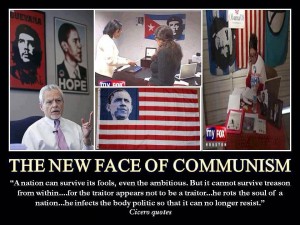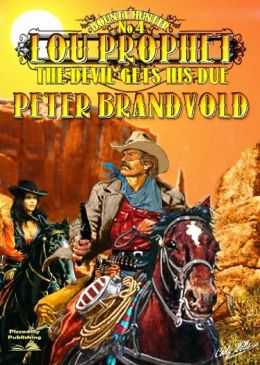Back in the Golden Age of videogames there was a weapon gamers were familiar with called a “smart bomb.” When enemy spacecraft began to overwhelm you and your lasers had become an ineffectual asset against the intensity of the attack, you could use the smart bomb you’d been saving, and all the ships on the screen would be simultaneously destroyed.
For the last few decades, in the realm of public debate of a political nature, one side has been resorting to its own smart bomb. When a left-wing collectivist (called “liberal” for PR purposes) finds him or herself being destroyed by the preponderance of evidence and facts presented during debate, they simply accuse racism. All the arguments threatening to overwhelm them are then magically destroyed and they can declare themselves the victor.
 Since 2008 the leftists have been using the race card smart bomb at the beginning of debate to preempt any argument the other side may use. Their opponent hasn’t said or done anything racist, but the accusation is enough to invalidate their arguments in the mind of the average boob tube junkie. Unlike videogames, though, the left has an unlimited supply of these political smart bombs. They’ve used them so frequently and indiscriminantly, however, that the race card smart bomb is not as effective as it used to be.
Since 2008 the leftists have been using the race card smart bomb at the beginning of debate to preempt any argument the other side may use. Their opponent hasn’t said or done anything racist, but the accusation is enough to invalidate their arguments in the mind of the average boob tube junkie. Unlike videogames, though, the left has an unlimited supply of these political smart bombs. They’ve used them so frequently and indiscriminantly, however, that the race card smart bomb is not as effective as it used to be.
The smart bomb is most often used to assassinate the character of individuals.
Of course the left and the mainstream media (forgive my redundancy) employ the race card selectively. If you’re a Democrat, even a history that includes KKK membership won’t hinder a career in the Senate; and the media won’t bother to scrutinize your true colors until the Clintons and Obamas of the world jump on the bandwagon to make excuses for you.

But the race card smart bomb is also used to condemn the United States of America as a whole by those who see the USA as unexceptional, at best.
And it’s no wonder that anti-Americans are so desperate: the truth of history is overwhelming.
There has never been a nation in recorded history to offer such opportunity, where prosperity is so taken for granted that the poor here have more than the upper-income in other countries. Of course that’s changing as the free market is strangled, but there are still a whole lot more people trying to get in than get out. In fact, they are using any and every means conceivable to get in, and at a rate that has exceeded the birth rate of US citizens in the border states.
(You would probably do the same if it meant a life-long free welfare ride for you, free education and medical care for your kids, and all you had to do to earn it is vote Democrat once you are anchored inside unexceptional ol’ America.)
But America is not only unexceptional, it’s evil, they say.
Why? Slavery.
If you find yourself in a conversation that goes down this path, there are some implications you’ll pick up on in the anti-American person’s attitude, if you’re astute. They won’t voice these assumptions out loud, of course, but they’re whispering in the subconscious:
- The USA is the only (or at least the worst) nation to allow enslavement of Africans.
- Slavery of non-Africans throughout history is of no consequence.
- Slavery of Africans is the single-most (if not the only) important phenomenon in world history (at least for the duration of this conversation).
With this stuff going on between the ears, all the facts will be ignored if they can’t be, or haven’t already been, twisted.
America was the most prosperous nation in history? Only because the unexceptional Americans had slaves to do their work for them, you see.
That prosperity hit its peak a century after slavery was abolished? Only because we exploited other downtrodden minorities somewhere or other. The Vietnamese–yeah, that’s it.
Obama swore to uphold the Constitution, then immediately went about destroying i t? Well the agenda justifies the treachery because the Constitution was written by white devils who tolerated slavery, you ignorant flag-waver.
t? Well the agenda justifies the treachery because the Constitution was written by white devils who tolerated slavery, you ignorant flag-waver.
And so on.
Here is some truth about America, Africa, slavery and racism that you rarely ever hear (but might want to remind the next smart-bomber you converse with):
- Slavery is as old as human government. You could call that a longstanding tradition, by the time the colonists in America got around to forming a better union.
- The United States of America did not exist until the late 1700s, though most anti-Americans try to assign the slavery statistics for the centuries before the Revolution to our national guilt. By sheer coincidence I’m sure, they also habitually omit statistics from 1865 to the present.
- Slavery lasted about 80 years in some of the states. How long did slavery last in Britain? In Spain? Portugal? Rome? Egypt?…
- More Africans have emigrated to the USA of their own free will than ever came to this nation on slave ships.
- The grass roots founders wanted to abolish slavery at the very start, but a compromise was made with the slave states of the South because we were at war with the British.
- Another compromise was made in the 1940s to arm, feed, and equip the empire of the worst slavemaster and mass-murderer in the world at that time, because we were at war with the Germans and Japanese. Nobody seems to have a problem with that, though.
- Americans fought, died, killed brothers, cousins and friends to free the slaves in the bloodiest war of our history. This fact is conveniently ignored.
- Slavery is alive and well in the world outside unexceptional ol’ America today, though you probably missed that while being convinced of how awful America is and how much we need to be transformed into the image of other countries.
- Chances are extremely high that you patronize modern slavery without even batting an eye, every time you swipe your debit card at Wal-Mart (and pretty much everywhere else people shop now). Because you want cheap products, and because you vote for policy makers who hate mean ol’ unexceptional America but love her enemies, you buy the exports of the most brutal slave plantation in the world.
Check your hypocrisy.










